Celebrating Orang Asli heritage and environment
Rompin, Pahang | 29–30 August 2025
Not many people are aware that 9 August is recognised internationally as the Day of the World’s Indigenous Peoples. It has been observed for more than thirty years, yet in Peninsular Malaysia the date often passes quietly. This stands in contrast to Sabah and Sarawak, where names like Gawai Dayak and Pesta Kaamatan are widely recognised, each celebration firmly rooted in the nation’s memory. For the Orang Asli, this day is still finding its place in the wider public consciousness, though its meaning has always been present in their communities.Its purpose is no less vital, to recognise heritage, and remind us of the living bond between people and land.
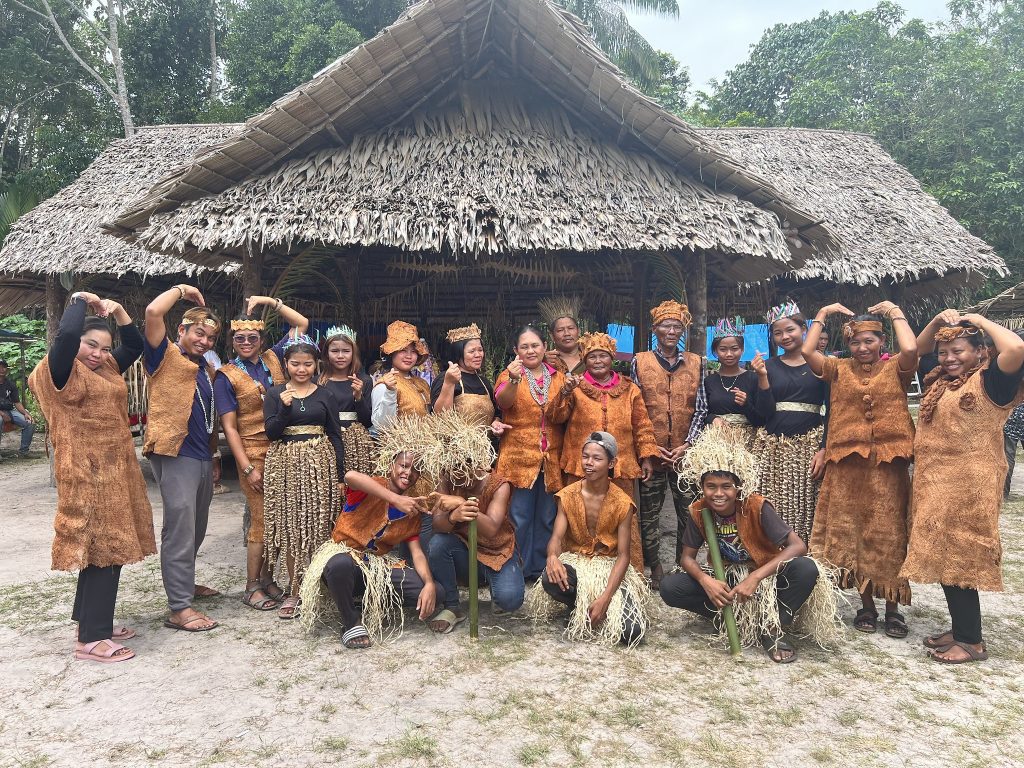
This year, the Perayaan Hari Orang Asal Sedunia (PHOAS) Batu 3, Rompin, carried that meaning forward with renewed strength. Organised by the Persatuan Suku Jakun Pahang in partnership with the Global Peace Foundation Malaysia, the 2 day event drew more than 300 people from villages across Rompin and Pekan. With the theme Orang Asal dan Alam Sekitar, it honoured the heritage of the Jakun community and reminded all who attended that culture and environment cannot be separated.
The celebration was also joined by YB Sim Chon Siang (ADUN Teruntum), together with representative from JAKOA Rompin, Mr Hamidi whose presence reflected the growing recognition of Orang Asli culture at both state and federal levels.
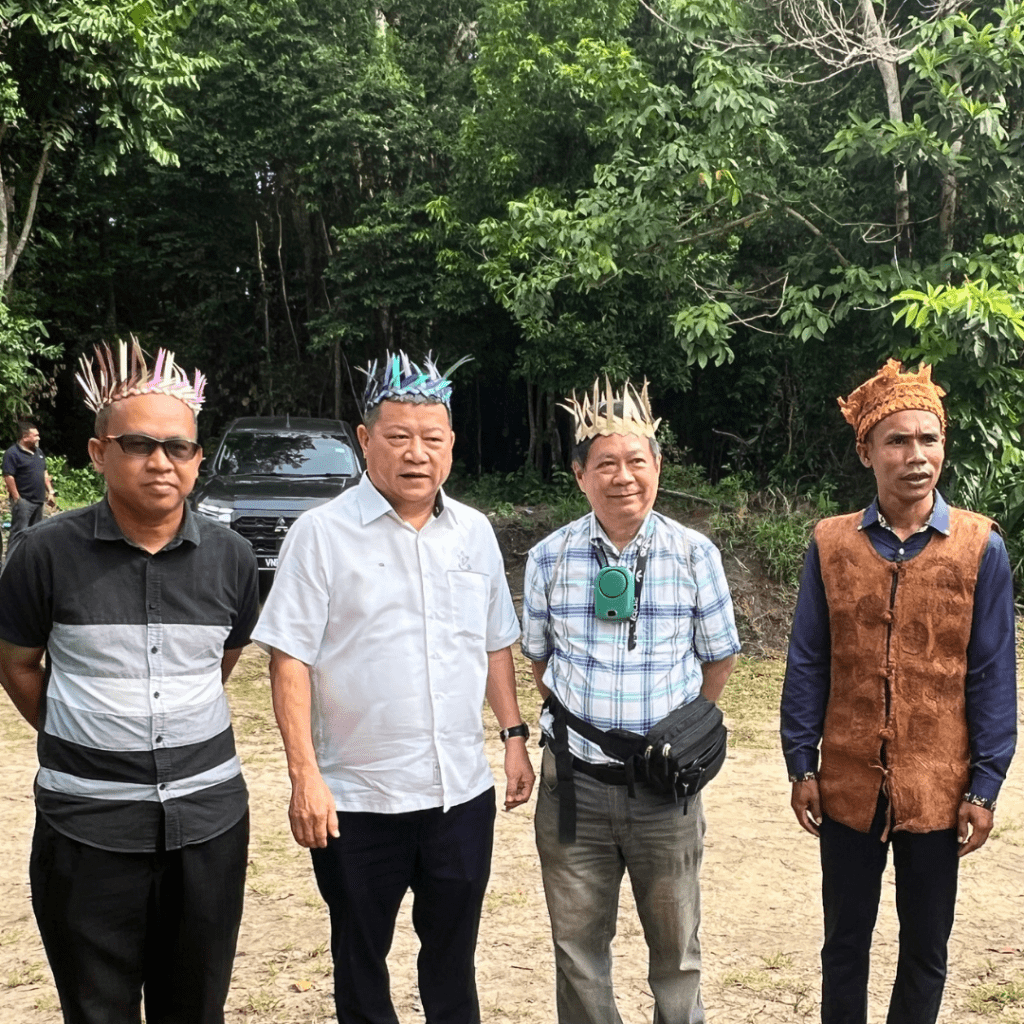
We were deeply honoured by the presence of YB Sim Chon Siang (ADUN Teruntum), Mr. Hamidi (JAKOA), and Mr. Hon Kai Ping (Board Member, Global Peace Foundation Malaysia) at the inauguration ceremony, whose support gave encouragement and recognition to our community.
Why this day matters
Celebrating this day is not a matter of ritual or token recognition. It is an act of honouring what is already present, a deep knowledge of forests and rivers, art forms that carry history, and values that remind us of balance and humility.
When children learn to weave Tempok from their elders, when youth walk the forest trail to Sungai Rompin, or when poems like ‘Aduh Sayang’ are recited aloud, they are not merely performing. They are continuing a living conversation that stretches back generations.
DAY 1 (29 August) : Children and youth in dialogue with heritage
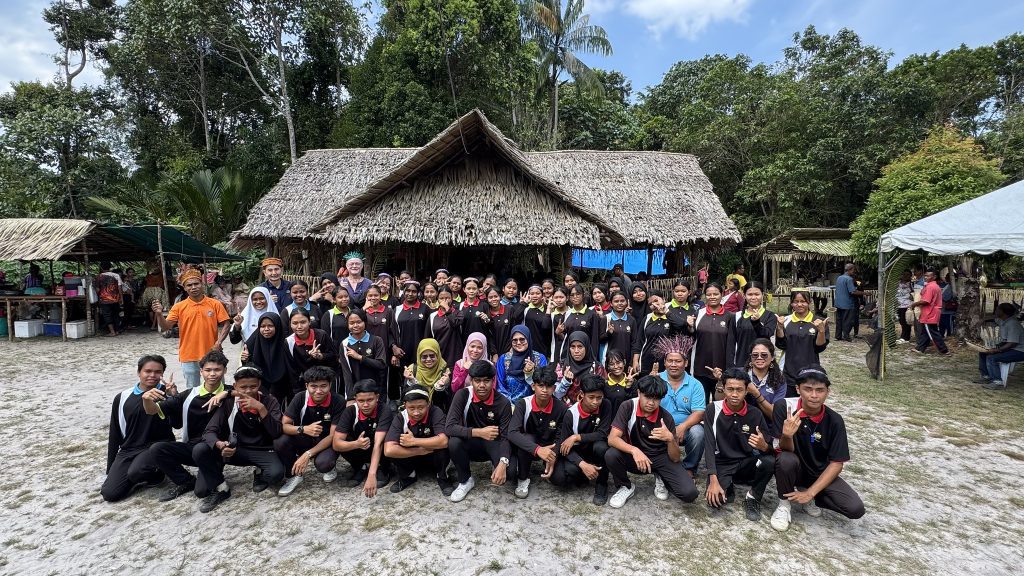
The first day was devoted to young people and children. Traditional games such as baling kelapa, terompah, melastik, and kumpul buah getah were played with lively participation. Students from the MOASIS programme of SMK Muadzam Jaya acted as facilitators, guiding their peers and local children through the activities.
Editor’s note: MOASIS stands for Murid Orang Asli Sumber Inspirasi Semuja. It is a programme based in SMK Muadzam Jaya (Semuja) that involves Orang Asli secondary school students. It’s a leadership and inspiration programme within Global Peace’s education initiatives, designed to empower Orang Asli students to support their peers and communities.


Full house attendance with youths, children and community participating
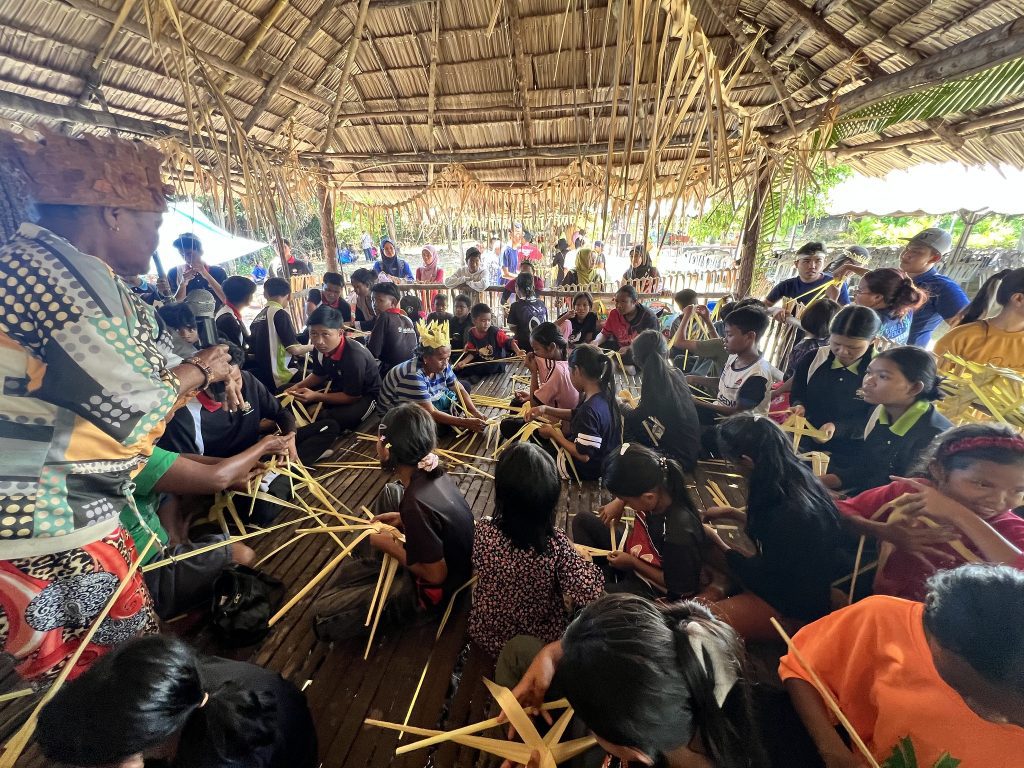
Workshops followed, including warisan anyaman, where village elders taught the weaving of Tempok, a traditional and ceremonial headpiece worn during traditional occasion and symbolising respect for guests.
Tempok is usually made from natural forest materials such as daun kelapa, bertam or other pliable leaves that can be split and woven into narrow strips. The Tempok is light, circular in shape, and worn on the head.


The traps were not only tools for survival but also a reminder of the balance that guided hunting practices, to take only what was needed, and to respect the rhythms of the forest that sustained the community.
The demonstrations of hunting traps revealed the careful knowledge Orang Asli communities have developed about forest life. Each design showed a close reading of the habits of animals, from the lighter snares once used for small deer to the heavier frames prepared for wild boar.
Mamak Hasbudin explained how the traps were made with materials taken directly from the forest, and how their use was guided by restraint. The traps were tools for survival, but they also carried lessons about taking only what was needed and maintaining respect for the balance of the natural world.
Editor’s note: In the Jakun community, the word “Mamak” is a respectful title used to address elder men, while the word “Amai” is used to address elder woman
A forest walk led by community members brought the group to Sungai Rompin. Along the way, Mamak and Amai explained how certain trees are valued for building, food, or medicine, and how their protection ensures continuity for future generations.
In the afternoon, attention turned to a forum on the environment and Orang Asli perspectives (Theme: Orang Asli dan Alam Sekitar), moderated by Global Peace’s Field Office Manager, Mia Yusri who is also a Jahut tribe herself.
Dr Teh Su Thye, representing Global Peace, spoke about sustainable methods of forest farming and the need to work with natural cycles rather than against them. Dr Colin Nicholas of the Center for Orang Asli Concerns (COAC) emphasised the importance of documentation and record keeping, explaining how cultural knowledge, once passed mainly by word of mouth, requires written and recorded forms if it is to be preserved in today’s world. Their remarks invited participants to see how heritage, environment, and careful record keeping form part of the same effort to protect both land and identity.


At the same time, children took part in colouring activity, puzzle and joining traditional costume contest.


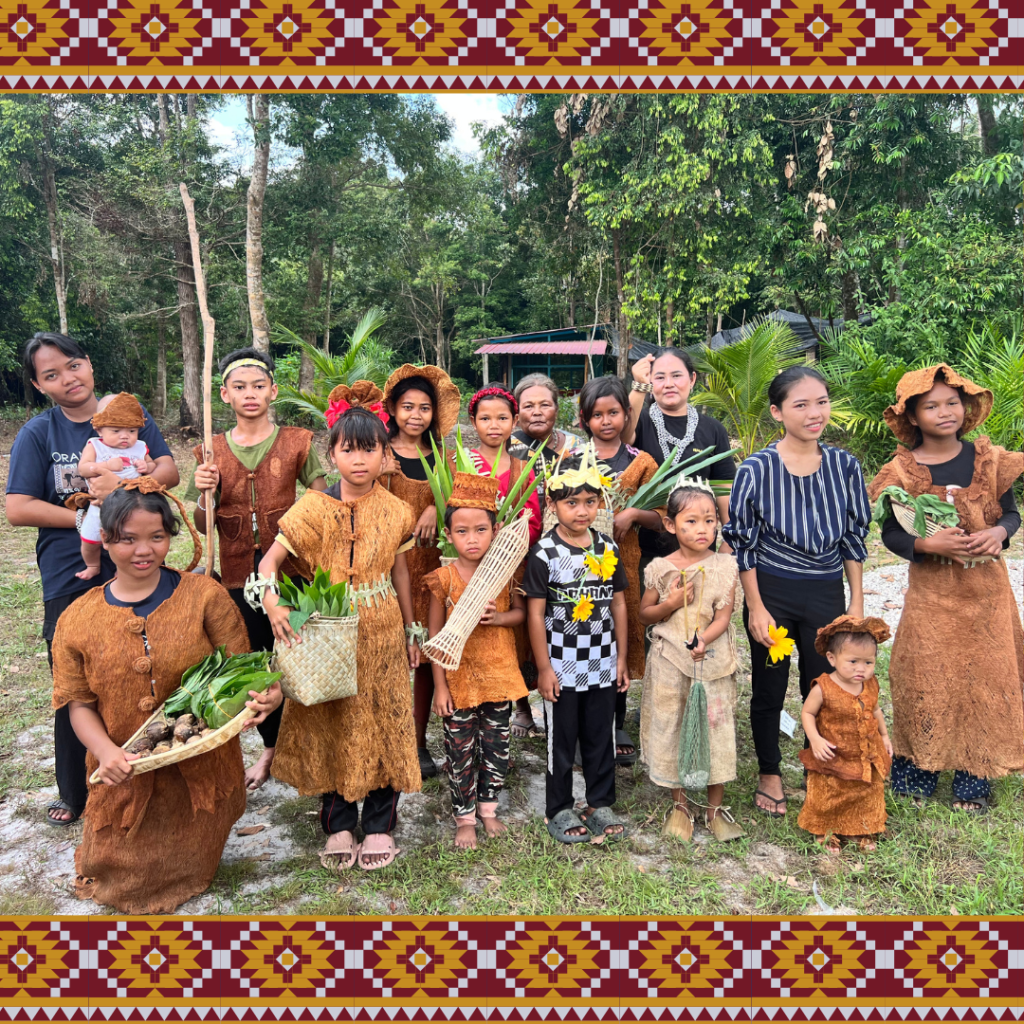
Children dressed in their traditional kulit kayu attire stood with simple props that reflected the materials of their forest home.
The day concluded with adult traditional sports, including blowpipe shooting, sack racing, and tug-of-war, followed by a communal meal. (Catch the video snippet of traditional sports below)
DAY 2 (30 August): Strength in ritual and pride in cultural identity
The second day opened with the Julang Semangat ritual, a prayer for strength and blessing handed down through Jakun tradition.
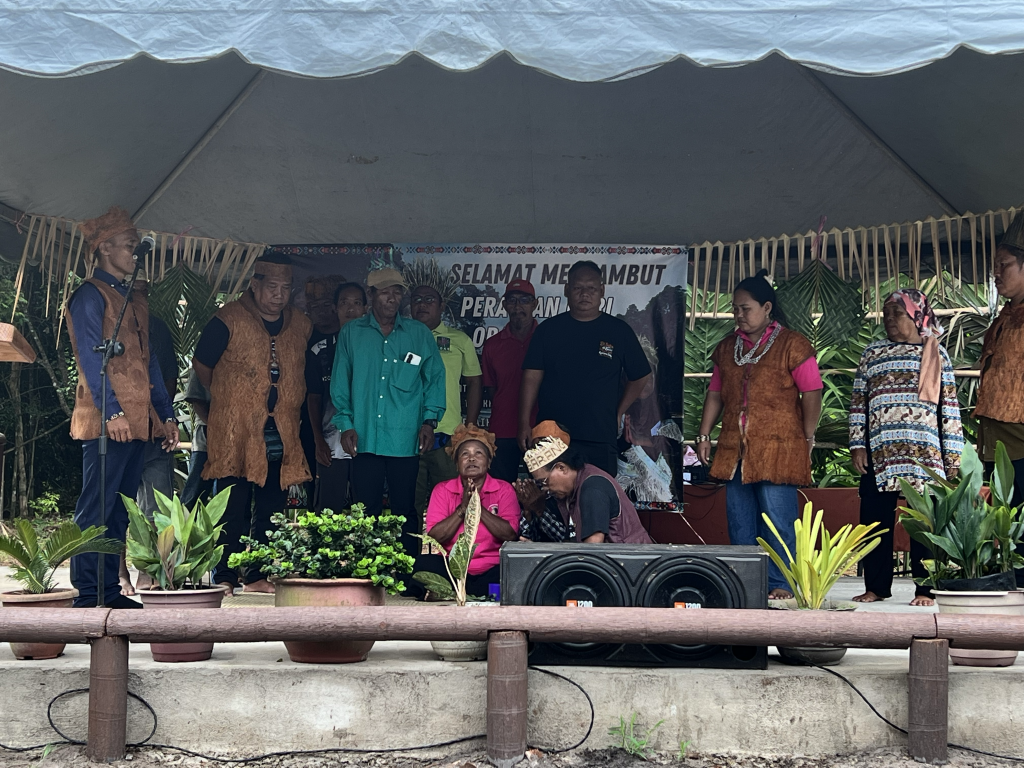
The Julang semangat brings together leaders, elders, and community members, signifying collective strength. It is not only a prayer for individuals but also for the well-being of the entire group.
Guests visited stalls displaying Jakun handicrafts, traditional dress, and trap-making demonstrations, alongside exhibits by COAC and Global Peace. The community also staged cultural performances, including the Sewang dance and a recital of the poem Aduh Sayang, which reflected on environmental decline and its impact on indigenous life.

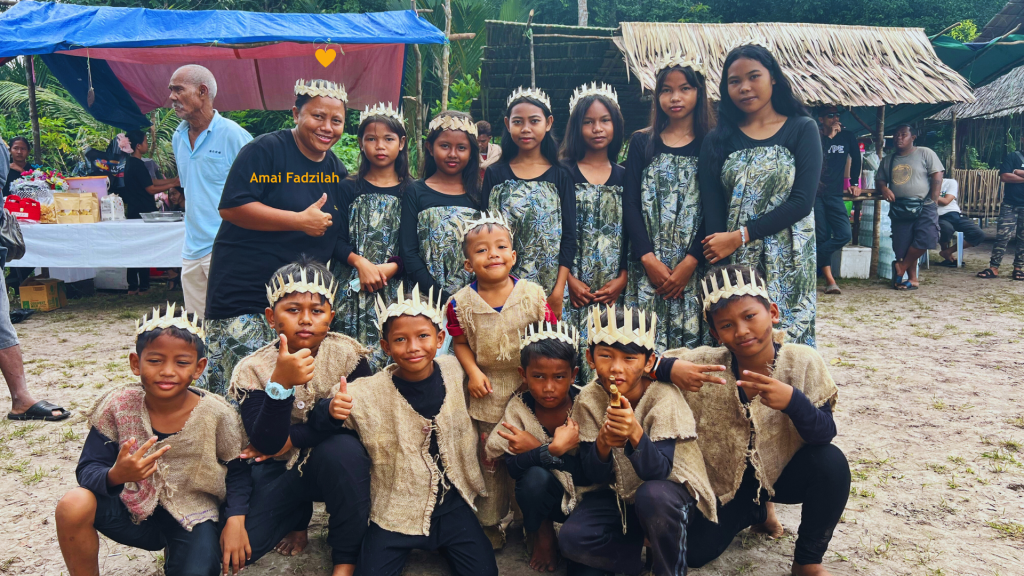

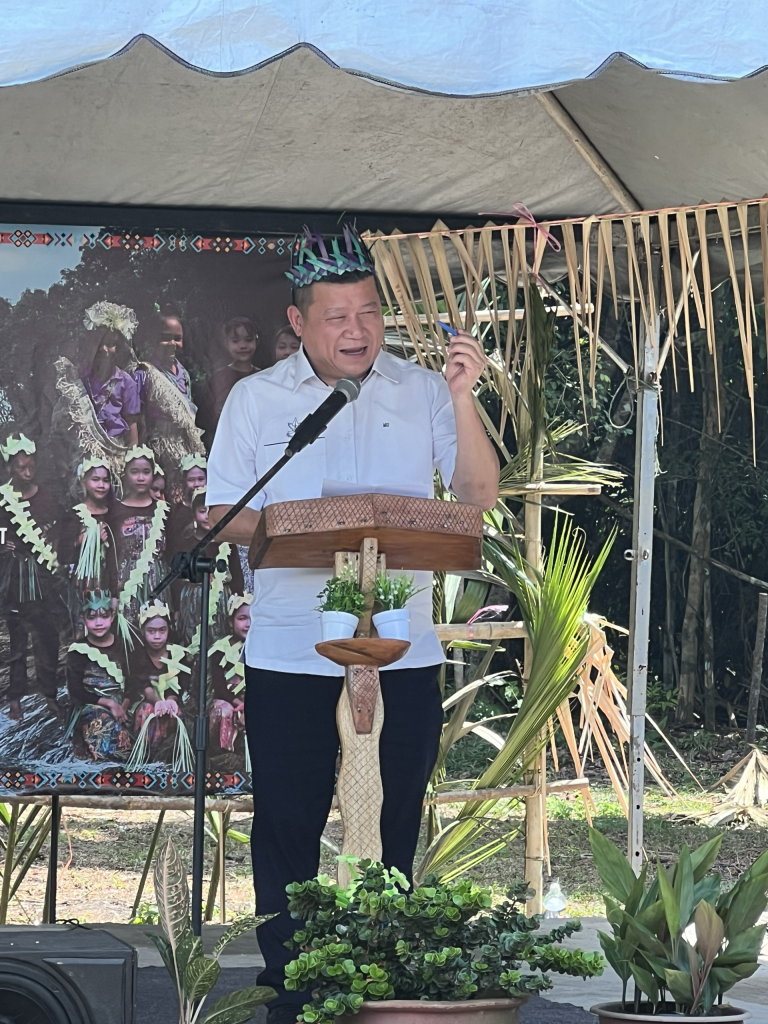
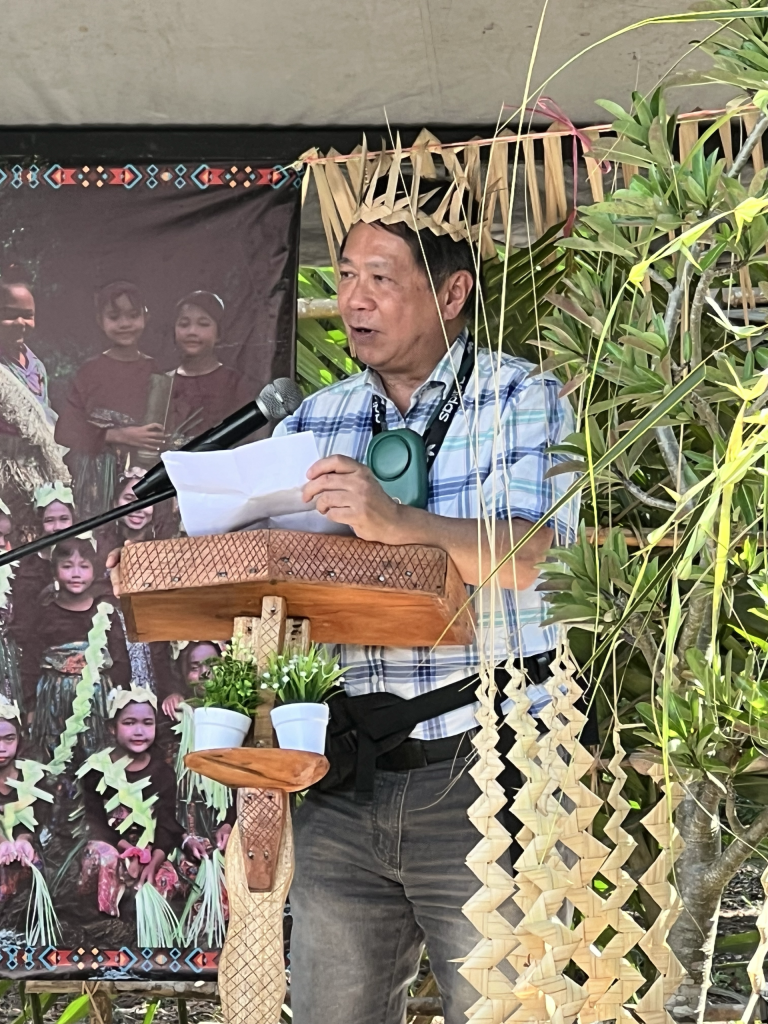
In his speech, YB Sim stressed the importance of education in shaping future opportunities for Orang Asli families. He also encouraged closer cooperation between JAKOA and village leaders to ensure accuracy in community data, and announced the appointment of Puan Fatimah Bah Sin as the new Exco for Orang Asli Affairs in Pahang.
Mr. Hon emphasised the importance of close collaboration with the Orang Asli communities, especially in creating educational opportunities for their children. He also underlined Global Peace Foundation Malaysia’s ongoing commitment to supporting Orang Asli development. In his remarks, he reminded those present that the Orang Asli are not only community members but also guardians of the forest, carrying knowledge and responsibility that are vital for the wellbeing of both people and the environment.
Looking forward
PHOAS 2025 Batu 3 served as both a celebration and a reminder. It honoured the heritage of the Jakun people and reinforced the message that culture and environment remain inseparable. The gathering also opened space for dialogue between villagers, youth, and leaders, showing how tradition and modern governance can stand together in shaping a resilient future for Orang Asli communities.






